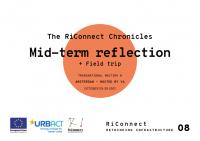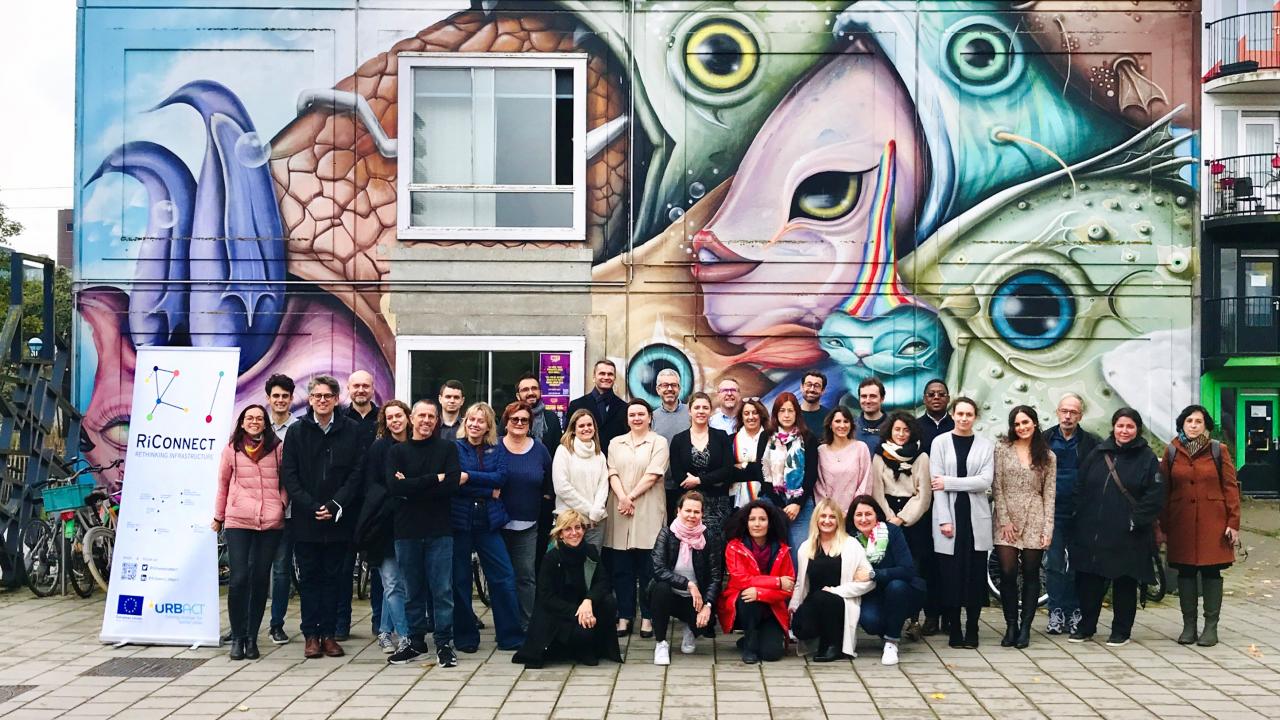
In July 2021 RiConnect initiated a mid-term review process with the purpose to reflect on the project status for our eight partners. Here are the views of our Lead Expert, Roland Krebs, on our achievements and the steps to come.
RiConnect is seeking to integrate mobility infrastructure into a formal planning process in order to activate urban voids, wastelands etc. and reconnect those areas with concrete, place-based solutions. These solutions were developed by the respective stakeholder groups in a co-creation planning process. In October 2021 we all felt that it was about time to meet in person and reflect on our work and progress. During this meeting an in-depth feedback process of the draft Integrated Action Plans was conducted, including peer-review sessions about the Draft Integrated Action Plans.
How it all started: During the very first Transnational Meeting of Phase 2 in June 2020, we introduced some creative concepts how to overcome the burden of online meetings without being present in the host city. During this Kick-Off meeting, I conducted a virtual site visit from my hometown Vienna and moved with the bicycle on some interesting spots in the city, all filmed through my phone camera. In the following meetings, our partners followed with other creative inputs to present their city cases, live-streams, online discussion panels, drone flights, videos etc. and reflected with the peers solutions in metropolitan planning.
In total we had four Thematic Meetings that were hosted and co-hosted by the eight partners with the following topics: a) October 21-22, 2020 “Rethinking the way we move”, hosted by KMA and co-organized by TfGM, b) February 4-5, 2021 “Integrating the Infrastructure”, hosted by AMP and co-organized by OMGGS, c) April 2-5, 2021 “Adding Ecosystem Functions”, hosted by MDAT and co-organized by VA and d) July 6-7, 2021 “Rethinking Metropolis Planning”, hosted by MGP and co-organized by AMB. The purpose of those meetings was to trigger knowledge exchange with local and international experts in the fields of the respective meeting, with an outstanding list of high-level professionals and experts in their fields. All four meetings were accompanied by a graphical recording by artist and architect Milagros Hurtig from superwien (figure 1).
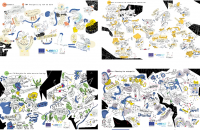
Figure 1: Graphical recordings that accompanied the RiConnect Thematic Meetings
To support the partners with European expertise in brownfield transformation and the development of urban voids next or under (obsolete) infrastructure, we initiated a collection of good practices of more than 20 cases that are structured through 3 typologies of infrastructure a) nodal b) linear and c) areal or enclosed infrastructures. We are further developing this knowledge to prepare the RiConnect Final Report (figure 2).

Figure 2: RiConnect Good Practice Research
We organized four webinars meant to support the partners in the understanding of development of integrated action plans and to support thematically the multi-sectorial approach in the search of place-based solutions (see figure 3):
a) November 30, 2020, “When is a wasteland?” by Brian Rosa, researcher in Barcelona
b) March 16, 2021, “East New York, Brooklyn – an integrated approach to transit-oriented development” by Winston von Engel, director of the Brooklyn office the New York City Department of Planning, New York City
c) June 8, 2021, “Placemaking Europe – Strategic actions to turn public spaces into places we love”, by Charlot Schans, director of Placemaking Europe, Amsterdam
d) September 22, 2021, “RiConnect ecosystems: economy, cohesion and gender – tackling social aspects for an integrated project approach”, by our ad-hoc expert Bahanur Nasya, Eutropian, Vienna.
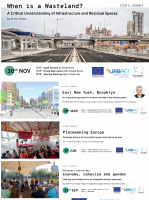
Figure 3: RiConnect Webinars
Overall, the partners learnt extensively from the online inputs sessions and used the gained knowledge in their Integrated Action Plans. The Mid-Term Reflection revealed that 75% of partners feel they had progressed as expected, or more than expected. Only two partners feel that they had less progress than expected. All partners have concluded the draft version of the Integrated Action Plan. We introduced techniques how to define ‘Emerging Topics’, a compilation of challenges and potentials that were derived from co-creation workshops and stakeholder interviews, and how to combine them with project goals and actions with the help of a ‘Logical Framework’: an innovative methodology to visualize the integrated planning approach and the interconnectivity of “Emerging Topics”, “Goals” and “Actions”.
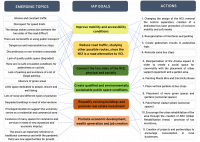
Figure 4: Sample of a Logical Framework developed by AMP
During the project development, we accompanied the partners with exhaustive capacity building and training sessions. For example, we compiled a RiConnect Co-Creation Toolbox with about 25 tools that our partners can use for a) scoping, b) assessment, c) design and planning the actions and d) evaluation. Numerous training session were held about ‘mapping and interview analysis’ and the integrated planning approach. To activate the methodology for our partners, we organized feedback sessions for specific steps of the project, e.g., ‘roadmap’, for the ‘vision and goals’, and ‘how to draft an IAP’. Additionally, before starting with the co-creation phase of the project, the partners developed workshop concepts and co-creation scripts on how the partners wanted to use the RiConnect co-creation-toolbox.
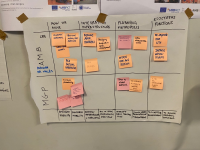
Figure 5: Poster from Peer-Review Process focusing on integrated proposals during MTR
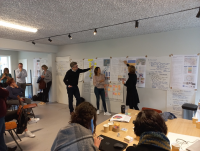
Figure 6: Our first meeting in Amsterdam – a dream of meeting in person became true
The main take-away from the Mid-Term Review process is that the partners feel that the project addresses metropolitan planning and urban design in the right way: strategic, tangible solutions with metropolitan impact are being developed, in co-creation between the relevant local actors. There are still several constraints that challenge projects such as the partners’ organizations, the metropolitan dilemma, the multilevel governance among other issues. However, the priorities in the project are set right and all partners managed to prepare a good quality draft Integrated Action Plan. Now we are working on delivering a meaningful Integrated Action Plan. We cannot wait to present it to the broader audience! Stay tuned!
|
The RiConnect Chronicles 08: Mid-term reflection + Field trip The Mid-term review process had a relevant milestone at the RiConnect Transnational Meeting 8, celebrated in Amsterdam in October 2021, where we discussed our progress and set the path towards the end of our IAPs. In addition, we also held a field trip to visit relevant infrastructure projects around the Netherlands, in the Hague, Rotterdam and Utrecht. A summary of the discussion is available at The RiConnect Chronicles 08, a record of events in the order in which they occurred, to highlight the most relevant ideas to the topic dealt with during this meeting.
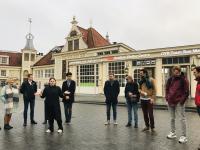
|
Cover image: Group picture in Zuidoost, Amsterdam, in our Transnational Meeting 8 on October 2021. Image credit: Stela Salinas.


